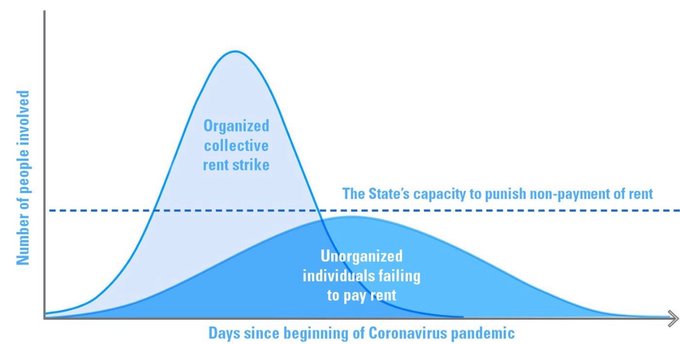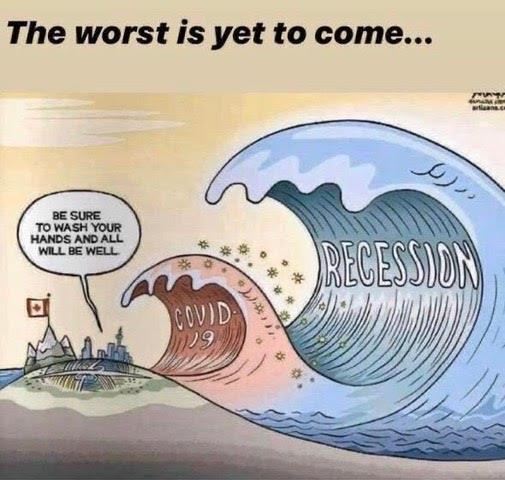Not ALL COVID-related "state interventions" are the same
There are interventions, and then there are interventions…
A recent article about Pandemic Fueled, Heavy-handed EU State Interventions paints an picture of two “rogue” members of the European Union that, while being correct in and by itself, seems to me missing of a complete background.
The article criticizes the actions of two governments, Giuseppe Conte’s here in Italy, and Viktor Orbán’s in Hungary:
“True to form, the right-wing populist government of Hungary - a perennial EU black sheep in terms of the rule of law - has proven unable to pass up a crisis….Orbán declared a ‘state of danger' [that] gave his government far-reaching powers…"
Speaking of Italy, the article criticizes, among other things:
- “blatantly opportunistic strategies”, including efforts to “bring privatized companies back under state control.”
- “renationalizing the chronically failing airline Alitalia and embarking on a plan to create a single broadband operator out of Telecom Italia (TIM) and upstart challenger Open Fiber”
There are interventions, and then there are interventions…
When COVID-19 first appeared on the mainstream public radar, in late February 2020, I did, almost automatically, wonder for a couple of weeks that our top politicians (of any party) may exhagerate the situation, exactly to pass spending that otherwise would have not been tolerated by the EU (and please, if there is any EU government or political party that never even considered played with similar thoughts, do let me know!).
Then THIS started to happen:

making clear beyond doubt that, regardless of any, surely present opportunism, this was not Business as Usual, and required extraordinary measures.
Since then, it has been very clear to me that it is absolutely essential to distinguish between:
- “Backdoor power grabs” for the mere sake of power or money, and
- Attacking or bypassing stuff that was hopelessly broken before the pandemics
In my opinion, the second category may be the most harmful of the two, in the long run. In any case, what is really dangerous, even when it is in good faith (no, maybe: expecially when it is in good faith!) is to dump the two classes of actions together, or hide any of them behind the other.
Stuff like passing laws that institutionalize racism, or benefit only the politicians or parties that approved them, belongs in the first category, and is wrong. That is easy.
And yes, wasting even more money on Alitalia (or almost any other company that was already dying in 2019) with the excuse of the pandemic is wrong too. I said so eight months ago.
In my “COVID19 in Italy” reports you may also find confirmations that government transparency in Italy, “lost to both urgency (unavoidable) and institutional confusion”, because, since March 2020, Italy has been “de-facto ruled by the executive, much more than by its Parliament”. On this website you may also find complaints that Italy’s telecom market is not exactly “free”, posted right BEFORE the lockdown. And all this is bad, no question.
But…
As Einstein famously, but maybe never said, “insanity is doing the same thing over and over and expecting a different result”.
It was already very clear in April, as I quoted here, that:
“Unlike the 1929 and 2008 crises, this one hits first and foremost the real economy, not financial markets” and that “this pandemic looks a lot like the “creative distruction”… which is considered a physiological component of CAPITALISM", not of evil, narrow-minded, backwards fans of North Korea.
In any case, it was clear since at least 2018 that “a meltdown worse than 2008 will happen in NO MORE THAN TWO YEARS from now”. Italy had 1.8 million families in “absolute poverty” BEFORE the March 2020 lockdown. The US held (regardless of Trump!) questionable primacies strictly related to “free” markets” in 2019. Inequality, economic insecurity and anxiety have been rising worldwide for years.

Unflatten THIS
</em></u>
Coronavirus has surely made things worse, but since March it has also, very conveniently, taken the FULL blame for serious socio-economic troubles that were structurally coming to roost “Real Soon Now” anyway:

THIS is why it is wrong, and dangerous, to dump in the same bin “power grabs” with, shall we say, attempts to not go back to exactly the same kind of business that was usual in 2019.
In general, said me, again BEFORE Italy’s lockdown, it really seems that:
- “Coronavirus is making us behave much more as almost all scientists and doctors, and increasing numbers of economists, were already begging us to behave."
- “In the medium and long term, the worst possible outcome of Coronavirus may be that many of the potential steps towards a better world that are happening now only to stop the pandemic, are canceled as soon as the outbreak ends”
So please let’s do not mix “coup” attempts with attempts to NOT restore, exactly as it was, something that was obviously NOT working.
Speaking of Brussels…
Says the article that “thus far, Brussels has not demonstrated that it is willing or able to stop” the rogue EU governments now plotting (meaningfully or not, is a whole different story, of course) against EU long-standing market dogmas.
Personally, I half hope, half suspect that this is happening because even “Brussels” has started to listen to Einstein. Maybe even “Brussels” has started to suspect that a return to 2019 would be stupid, even if it were a) feasible, and b) acceptable by a majority of the Europeans that will vote the next EU Parliament in 2024, when they may very likely still be in the same “fourth aftershock wave” they were in 2019, just worst.
(thanks Andy Oram for pointing my attention to that article!)
Who writes this, why, and how to help
I am Marco Fioretti, tech writer and aspiring polymath doing human-digital research and popularization.
I do it because YOUR civil rights and the quality of YOUR life depend every year more on how software is used AROUND you.
To this end, I have already shared more than a million words on this blog, without any paywall or user tracking, and am sharing the next million through a newsletter, also without any paywall.
The more direct support I get, the more I can continue to inform for free parents, teachers, decision makers, and everybody else who should know more stuff like this. You can support me with paid subscriptions to my newsletter, donations via PayPal (mfioretti@nexaima.net) or LiberaPay, or in any of the other ways listed here.THANKS for your support!